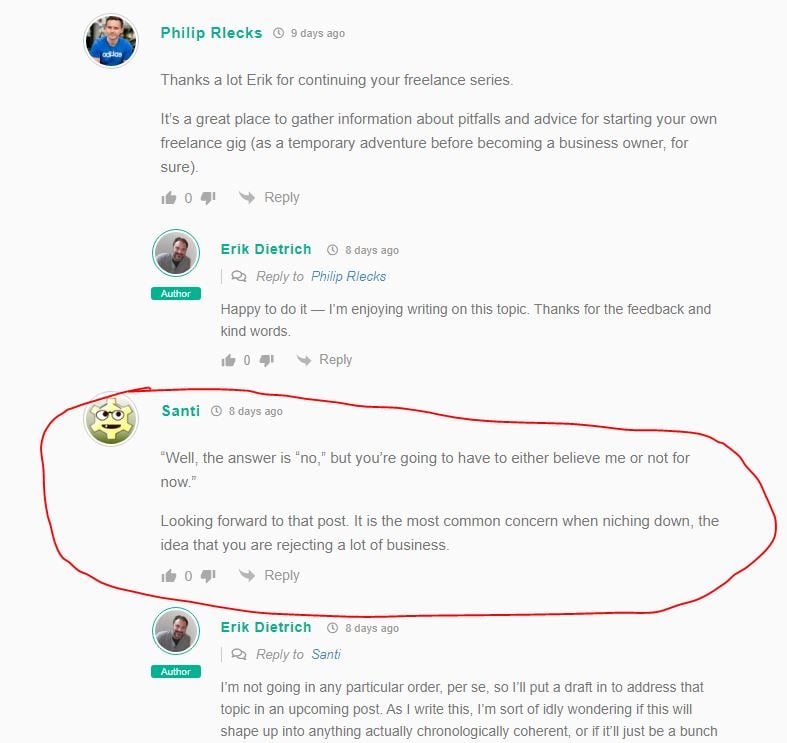After the gigantic rant I queued up last time, I’m going to resume instructional content in this business of freelancing series. I think I’ve driven home the importance of reasoning about profit and I’ve introduced you to some business models to think about.
So let’s focus on actually hanging out your shingle and getting started.
Now, I don’t actually think you really need a website to start. But a lot of people and most of you reading would probably disagree. “How can you start a business without a website?!”
I frankly don’t care enough to argue the point. So let’s just move on and assume that you’re going to build one, whether you need it or not.
First, The Ugly: What You’re Probably About to Do If I Don’t Stop You
Alright, let’s take inventory of where you are. Just getting started, you have no clients or case studies, no testimonials or past history of business. So all of those things are out for including in your website.
As for your services… well, app dev, right? People give you requirements and you code ’em up and deploy that code that the world may bask in its well-crafted glory. Nothing much to really say there, either?
But you can’t just say nothing…
Here It Comes: The Platitudes, Cookie-Cutter Methodologies, and Life Stories
No, saying nothing won’t fly, so you decide to talk about yourself, your approach, and your philosophies in glowing, rambling terms. Oh, and in the plural of course.
Here at DogFood Inc, we strongly believe in integrity, work ethic, customers and decency. These foundational principles infuse everything that we do!
We start by having a meeting with you where we listen to all of your needs. You can think of this as gathering your requirements. We then enter what we like to call the design phase, where we bring our unique architectural experience to bear in designing your app.
Next comes implementation, where we make sure to use all of the latest design patterns and best practices. Then comes a rigorous round of testing, and finally hand-off, where we ask you to participate in our patent-pending user acceptance test process.
You may find yourself wondering why we’re named DogFood Inc. Good question! It all started 10 years ago with our founder and CEO’s dog, Spud. You see Spud…
{blah, blah, blah}
And so because of Spud, and because we believe in the practice of “dogfooding” by building every tool we use from scratch, Dogfood Inc was born! Let us take a bite out of your software needs!
Come on. You know you were going to write something like this. At least you were before I made you all self-conscious about it.

Don’t worry, I’m sure I wrote some similar drivel when I first hung out my own shingle 10 or more years ago. Years of suffering the incumbent indignities of resumes and cover letters fill us to the brim with BS, to the extent that it keeps spewing from us even as we leave that world behind.
Read More









